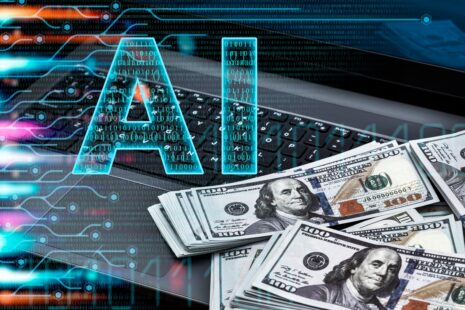As AI technology continues to evolve, it is expected to significantly impact various marketing tasks, automating processes and enabling more data-driven, personalized strategies.
Some Key Marketing Tasks that AI is Set to Replace or Transform
Content Creation
- Copywriting
AI-powered tools like GPT-3 and GPT-4 are already capable of generating high-quality written content for blogs, social media posts, email campaigns, and more. These systems can analyze a company’s tone, target audience, and even industry trends to craft compelling content quickly and efficiently.- For Example, Tools like Jasper.ai and Copy.ai can assist with everything from blog writing to ad copy generation, cutting down the time needed to produce content while maintaining quality.
- Social Media Posts and Ads
AI can create personalized social media posts, ads, and captions based on user preferences, optimizing for engagement and targeting the right audience segments.
Customer Segmentation and Targeting
- Audience Analysis
AI uses advanced data analysis to segment audiences more effectively by evaluating behaviors, demographics, and psychographics. By automating this process, businesses can target the most relevant consumers with precision, saving time and enhancing conversion rates.- For Example, AI tools like Google Ads and Facebook’s AI-driven marketing platform can automatically create audience segments based on vast amounts of user data, optimizing ad delivery without human intervention.
- Predictive Analytics
AI can predict consumer behavior by analyzing past data, allowing for smarter targeting of potential leads and customers. It can forecast trends, identify the best times for engagement, and recommend products, helping brands fine-tune their strategies.
Email Marketing Automation
- Personalized Campaigns
AI can automate email marketing campaigns by tailoring content to individual user preferences and behaviors. By analyzing customer interactions, AI systems can decide when to send emails, what content to include, and how to personalize offers.- For Example, Platforms like Mailchimp and HubSpot use AI to send personalized emails based on past user behavior, increasing open rates and engagement.
- A/B Testing and Optimization
AI can automatically test different subject lines, copy, images, and calls-to-action (CTAs) to determine which elements perform best. It can optimize email marketing efforts without the need for manual intervention.
Customer Service and Engagement
- Chatbots and Virtual Assistants
AI-driven chatbots are becoming increasingly sophisticated in handling customer inquiries, providing support, and guiding users through sales processes. These virtual assistants can offer instant responses, reducing the need for human customer service agents.- For Example, Tools like Intercom and Drift use AI to engage with customers, answer frequently asked questions, and even resolve complex issues, all without human input.
- Voice Assistants
Voice recognition and natural language processing (NLP) allow AI to handle customer service via voice interfaces, helping customers with everything from order inquiries to troubleshooting issues.
Ad Campaign Management
- Dynamic Ad Creation and Optimization
AI can optimize ad campaigns in real-time, adjusting bidding strategies, targeting, and creativity based on performance data. This process is often faster and more accurate than human management, ensuring higher ROI.- For Example, Google Ads and Facebook Ads use AI to automatically adjust campaigns for optimal performance, testing different ad formats, keywords, and audience segments to ensure maximum impact.
- Retargeting and Remarketing
AI-driven systems can track user behavior across different channels and automatically retarget users with relevant ads based on their previous interactions with the brand. This ensures a higher likelihood of conversion, reducing the need for manual audience management.
SEO (Search Engine Optimization)
- Keyword Research and Content Optimization
AI tools like Clearscope and SurferSEO are capable of analyzing top-performing content in real time, suggesting the best keywords, meta tags, and structures to improve rankings. This reduces the time spent on manual SEO efforts while providing better results.- For Example, AI can also optimize content for voice search and assist in creating SEO-friendly copy by analyzing search intent and understanding content relevance.
- Automated Reporting
AI can provide businesses with real-time analytics and performance reports, making it easier to track SEO metrics, keyword rankings, and overall site health without requiring constant manual oversight.
AI is set to automate a wide range of marketing tasks, from content creation and customer engagement to campaign management and SEO optimization. While this automation allows businesses to scale their operations and improve efficiency, it also shifts the focus of marketers toward more strategic, creative, and customer-focused roles. By leveraging AI effectively, companies can enhance personalization, boost engagement, and achieve more targeted, cost-effective marketing efforts.




